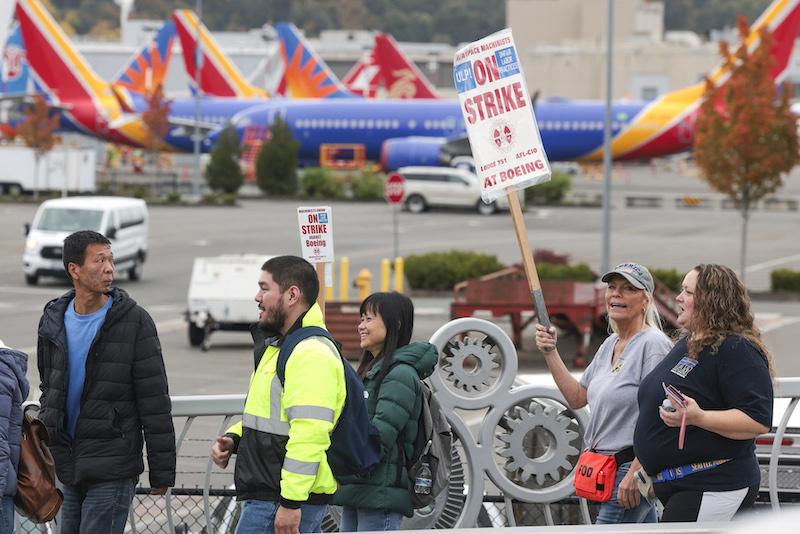
Credit: Jason Redmond/AFP
Boeing employees represented by the International Association of Machinists and Aerospace Workers (IAM) have voted down the latest contract offer proposed by the company in a move that will worsen the financial pain and delay production recovery in its commercial aircraft business. Sixty-four...
Subscription Required
IAM Votes Down Latest Boeing Proposal is published in Aerospace Daily & Defense Report, an Aviation Week Intelligence Network (AWIN) Market Briefing and is included with your AWIN membership.
Already a member of AWIN or subscribe to Aerospace Daily & Defense Report through your company? Login with your existing email and password.
Not a member? Learn how you can access the market intelligence and data you need to stay abreast of what's happening in the aerospace and defense community.





